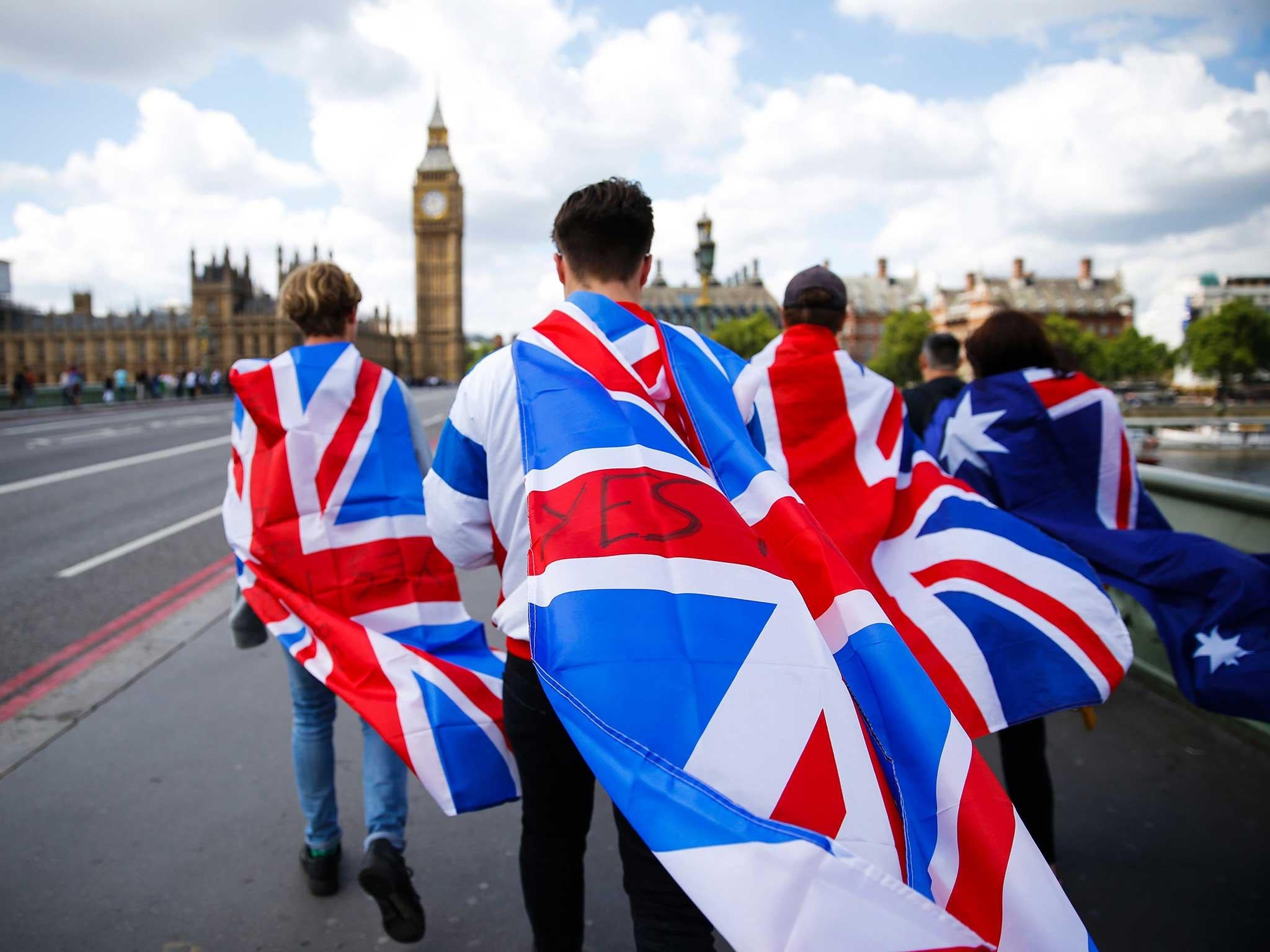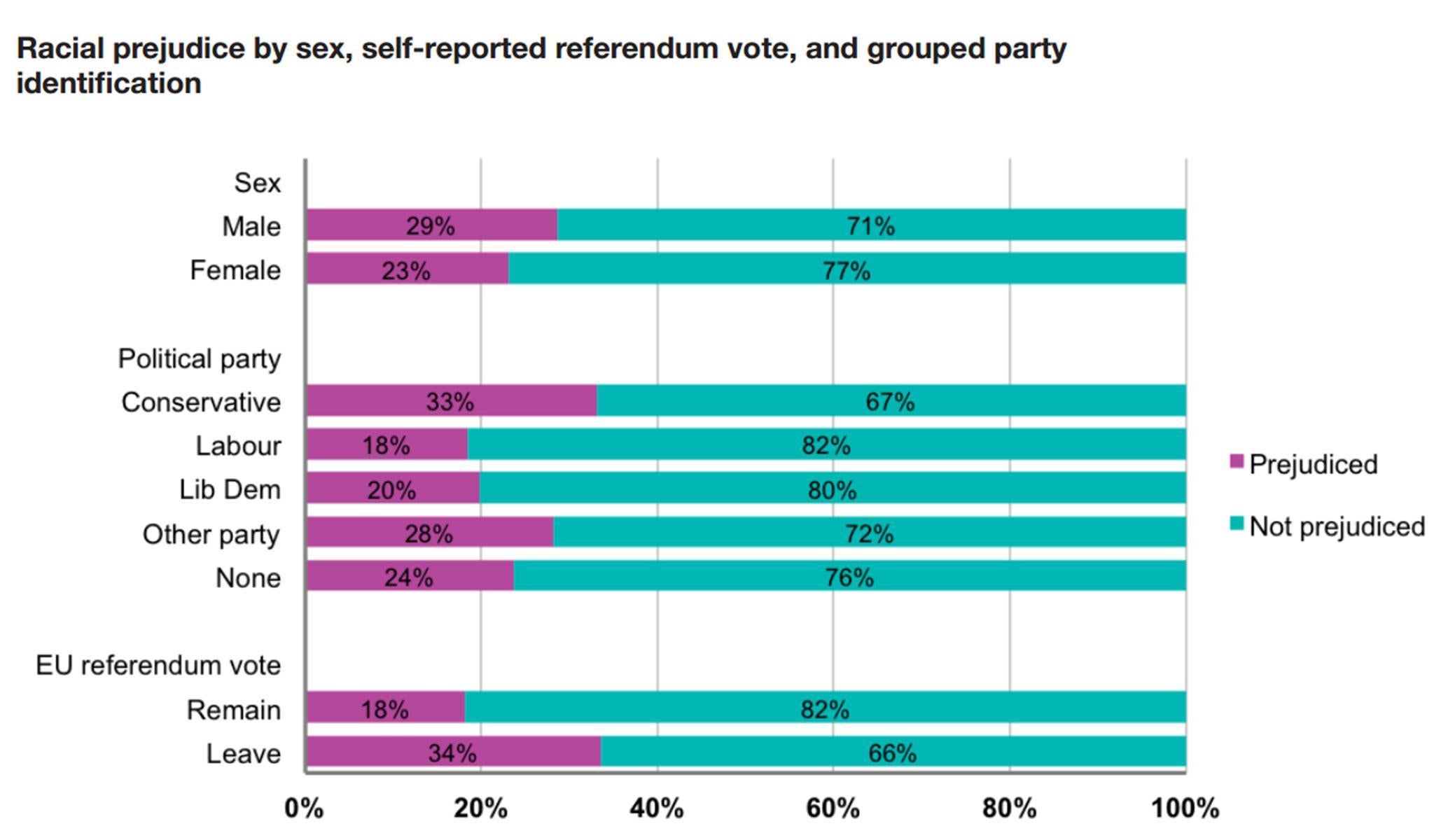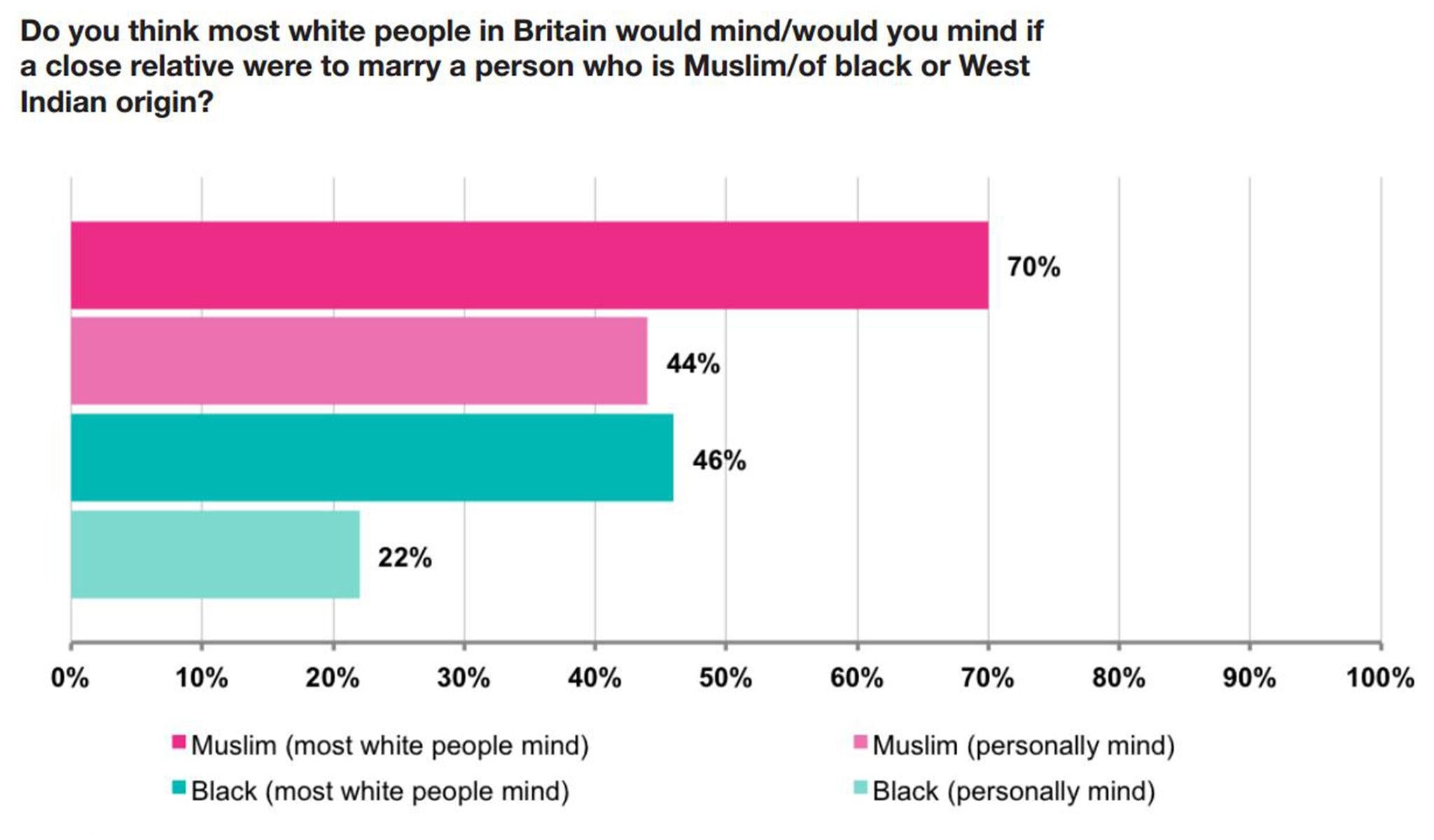One in four British people admit to being racially prejudiced
More than a third of Leave voters admit being racist, as 44% of respondents said they would 'mind' a relative marrying a Muslim

One in four British people admit to being racially prejudiced, including a third of Leave voters, a survey has found.
Research by the National Centre for Social Research (NatCen) and Runnymede found that 26 per cent of people described themselves as “very” or “a little” prejudiced towards people of other races.
When split by opinion in the EU referendum, 34 per cent of Leave voters admitted holding racist attitudes compared to 18 per cent of Remain voters, and similar proportions were seen in Conservative and Labour supporters respectively.
The survey of 2,220 people also found that men were more likely than women to describe themselves as racially prejudiced.

The Racial Prejudice in Britain Today study has been conducted annually since 1983 and the number of people saying they are racially prejudiced has never fallen below a quarter, peaking at 39 per cent in 1987 and hitting 37 per cent in 2011.
Nancy Kelley, deputy chief executive of NatCen, said the study appeared to buck the wider trend of growing tolerance shown in the British Social Attitudes survey, which has found attitudes towards same-sex couples, sex outside of marriage and abortion are steadily relaxing.
“These numbers provide clear evidence that a significant minority of people in Britain feel prejudiced towards people of other races,” she added.
“Prejudice on this scale is something we as a society should be concerned about, not least as there is a significant body of evidence that even subtle racial prejudices contribute to racial inequality in areas such as education, employment and in the criminal justice system.”
Dr Omar Khan, the director of Runnymede said the findings were “deeply concerning”.
He added: “This matters because the picture across society is one of unequal outcomes for BME citizens.

“People are consciously and unconsciously making decisions that impact negatively on black and Asian communities.
"We have been far too complacent about a rising wave of tolerance leading to a less prejudiced society.”
Dr Khan called for new ways of discussing race and tackling stereotypes and fears, calling for policies that tackle racial inequality and enable more social interaction between people from different backgrounds.
The study found that sensitivity to racism had increased, making people more likely to categorise themselves as prejudice, but that specific questions showed that people did hold biased views.
When respondents were asked whether they “would mind if a close relative were to marry a person of black or West Indian/Asian origin”, 22 per cent said they would.
A staggering 70 per cent of respondents also said that “most white British people” would mind if a close relative married a Muslim, with 44 per cent saying they would mind themselves - far above the proportion who admitted racial prejudice.
Newly published data from the European Social Survey, which was carried out in 2014, also found that one in five British people agreed with the statement that “some races or ethnic groups are born less intelligent” and almost half believed that “some are naturally harder working”.
A separate survey released this week found that more than half of British people would support the racial profiling of Muslims or Arabs for security reasons.
The research comes after a spike in hate crimes was reported in the wake of the EU referendum and a steep rise in the number of far-right radicals being flagged to the Government's anti-extremism programme.
Join our commenting forum
Join thought-provoking conversations, follow other Independent readers and see their replies
Comments